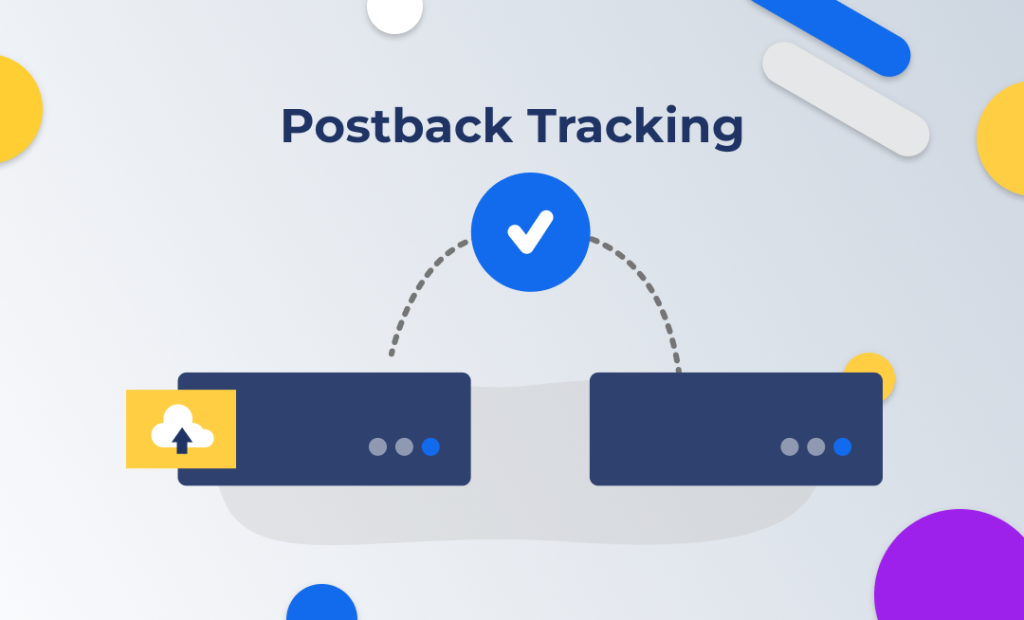
Introduction to Affiliate Postbacks
Why do we need to take affiliate postbacks more seriously? Picture this: You’re an iGaming operator trying to reward affiliates for driving players to your online casino. Or maybe you’re a forex broker relying on affiliates to connect you with new traders. Yet, every month brings challenges and the same problem: tracking inconsistencies lead to disputes, delays, and frustrated partners.
Affiliate postbacks are the solution. They provide a reliable way to track affiliate-driven conversions with precision and transparency. By directly linking actions to commissions, postbacks simplify operations and build trust—something both affiliates and operators value deeply.
What Are Affiliate Postbacks and Why Do They Matter?
Affiliate postbacks are server-to-server (S2S) tracking systems. When a player makes a deposit or a trader opens an account, the advertiser’s server sends data about the conversion directly to the affiliate platform. This bypasses the need for cookies or browser-based tracking, which are often blocked or deleted.
For example:
- In iGaming: A postback ensures the affiliate who brought in a high-roller gets proper credit for their deposits, even if the player used multiple devices.
- In forex: It guarantees that the affiliate is rewarded for connecting a trader who generates significant trading volume, even if the tracking happens days after initial engagement.
How Affiliate Postback Tracking Works: A Server-to-Server Guide
Server-to-Server Mechanism
When a user completes a conversion:
- A postback URL sends the conversion details (e.g., deposit amount, transaction ID) from the operator’s server to the affiliate’s.
- The affiliate’s system records the conversion and assigns it to the correct campaign.
This method eliminates issues like cookie expiry or browser restrictions. For example, if a casino player deposits £1,000 a week after clicking an affiliate’s link, postback tracking ensures the affiliate still gets credit—even if cookies were cleared.
Postback vs. Pixel Tracking: A Clear Advantage for iGaming and Forex
Why Cookies Are Becoming Obsolete
Google’s plans to phase out third-party cookies in Chrome have experienced multiple delays. Initially set for 2022, the deprecation was postponed to 2023, then to 2024, and most recently to 2025. However, as of July 2024, reports indicate that Google has decided to retain third-party cookies in its Chrome browser, with no clear timeline for their removal.
This series of delays and the latest decision to keep third-party cookies have significant implications for affiliate marketing. Many affiliates and operators had been preparing for a cookie-less future, investing in alternative tracking methods such as server-to-server tracking and postback URLs. These methods offer more reliable tracking, especially as cookies become less dependable due to factors like ad blockers and cross-device user behavior.
Despite Google’s current stance, 70% of senior marketers support Google’s decision to retain third-party cookies on Chrome. Industry trend is moving towards greater user privacy and reduced reliance on third-party cookies. Browsers like Safari and Firefox have already implemented strict tracking prevention measures. Therefore, it’s prudent for affiliate marketers to continue adopting and refining alternative tracking solutions to future-proof their operations.
In summary, while Google’s timeline for phasing out third-party cookies remains uncertain, the shift towards privacy-centric tracking methods is inevitable. Affiliates and operators should stay informed and adaptable, ensuring their tracking strategies align with industry developments and regulatory requirements.
The Postback Advantage
Postback tracking:
- Doesn’t rely on the user’s browser.
- Works seamlessly across devices.
- Provides accurate, real-time data.
Consider this:
- In iGaming: A VIP player clicks an affiliate link on their phone but registers and deposits on their tablet. With pixel tracking, the affiliate might lose credit. Postback tracking prevents this by tying conversions directly to the affiliate, regardless of the device used.
- In forex: A trader clicks an affiliate ad on Monday, opens an account on Wednesday, and makes a significant trade on Friday. Postback tracking ensures every step is recorded accurately, ensuring fair attribution.
How to Set Up Affiliate Postbacks
Step-by-Step Guide for Affiliate Postbacks
- Create a Tracking Link: Include parameters like transaction ID, country, and commission type.
- Configure the Postback URL: Ensure it captures the required data.
- Test the Setup: Use tools to verify that conversions are tracked correctly.
- Monitor Performance: Regularly review data to ensure accuracy.
Why Testing Matters
Cellxpert simplifies testing with its Test Affiliate Postback Tool, which allows operators to:
- Simulate affiliate links to ensure correct configuration.
- Verify dynamic parameters like transaction IDs or commission types.
- Identify missing values or errors before they impact live campaigns.
For example, a casino operator launching a new campaign can test whether their postback captures deposit amounts correctly, avoiding disputes later.
Benefits of Using Postbacks in Affiliate Marketing
Precision and Trust of Affiliate Postbacks
Postback tracking offers a tailored approach to precision that enhances trust between affiliates and operators. A unique feature of Cellxpert’s platform is its Qualified CPA tracking, which ensures that only conversions meeting the CPA threshold are sent back to affiliates. This eliminates confusion and avoids the frustration of affiliates wondering why they weren’t paid for certain actions. Learn more about how Cellxpert builds trust with affiliates and strengthens partnerships
Additionally, operators and brokers can include other essential parameters, such as commission amounts, FTD (First Time Deposit), and any additional custom fields requested by affiliates. For example:
- [afp]: Captures the affiliate parameter, such as a click ID, for better tracking clarity.
- [TrackingCode]: Logs campaign sources via UTM codes, helping affiliates identify traffic origins.
- [CommissionAmount]: Displays the calculated commission value for each qualified conversion, adding transparency to payouts.
These features not only strengthen trust but also provide affiliates with all the data they need to measure their success effectively.
Real-Time Insights
Postbacks send real-time updates to affiliates, enabling quicker decision-making. For example, if a forex broker notices a spike in trading volumes from a specific campaign, they can scale their efforts immediately to maximise returns.
Similarly, iGaming operators can act on deposit trends or player behaviour to tweak campaigns, ensuring peak performance.
Future-Proofing Your Affiliate Programme
As cookie-based tracking fades into obsolescence, postbacks position your programme at the forefront of industry innovation. With Cellxpert’s advanced tracking features, including country identifiers ([IsoCountry]), deposit IDs ([DepositId]), and transaction sums ([Transaction_sum]), operators can provide affiliates with unparalleled transparency. This not only fosters stronger partnerships but also sets the foundation for long-term growth.
Common Challenges and How to Overcome Them
Misconfigured URLs
Operators may forget to include all required parameters. Cellxpert’s tools flag missing values during testing, ensuring errors are fixed before campaigns go live.
Discrepancies in Conversion Data
Issues like latency can disrupt data transfer. Cellxpert offers real-time reporting to identify and resolve such problems quickly.
For example, if a casino affiliate reports missing deposit data, operators can use the platform to pinpoint the error and address it before it damages trust.
Best Practices for Implementing Postbacks
- Educate Your Affiliates: Share clear instructions for using postbacks.
- Test Regularly: Use tools like Cellxpert’s Test Pixel feature to avoid errors.
- Keep Data Secure: Comply with GDPR and other regulations to protect user data.
Conclusion
Affiliate postbacks are transforming how iGaming operators and forex brokers manage their partnerships. They offer a reliable, future-proof solution for tracking conversions, ensuring affiliates get the credit they deserve.
At Cellxpert, we help operators and brokers build trust through transparent, real-time data sharing. Our tools simplify postback integration, making it easier to grow your affiliate programme with confidence.
Ready to take your programme to the next level? Contact us Explore more insights on our blog and discover how we can support your affiliate management journey today.
Further Reading:



